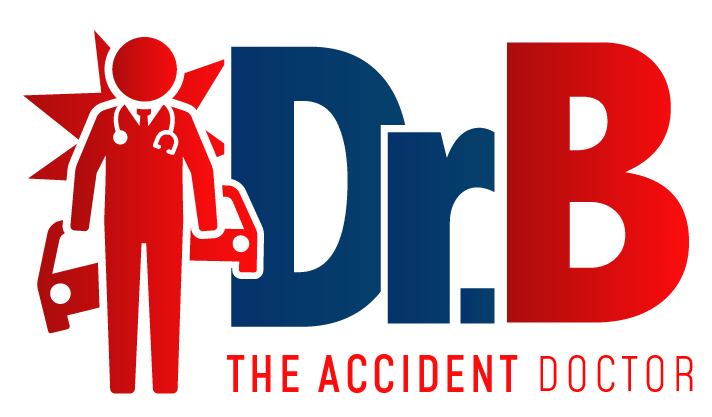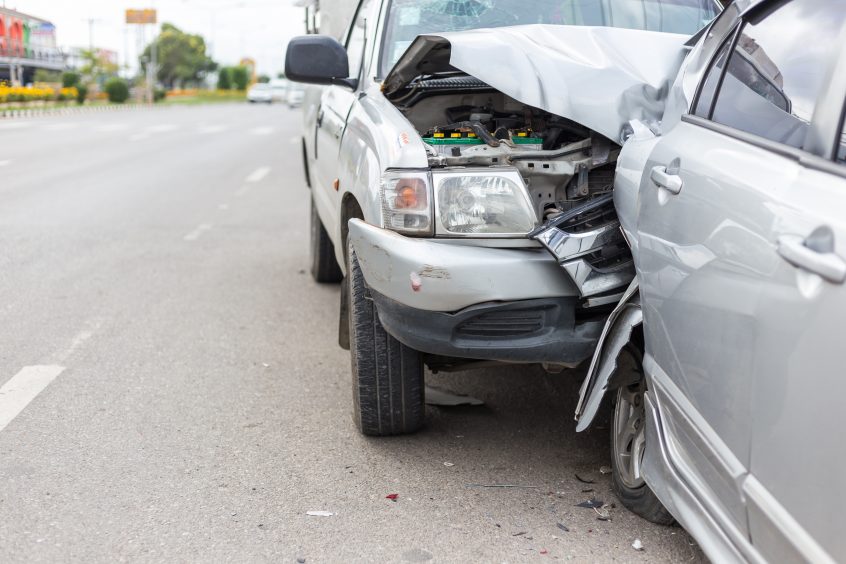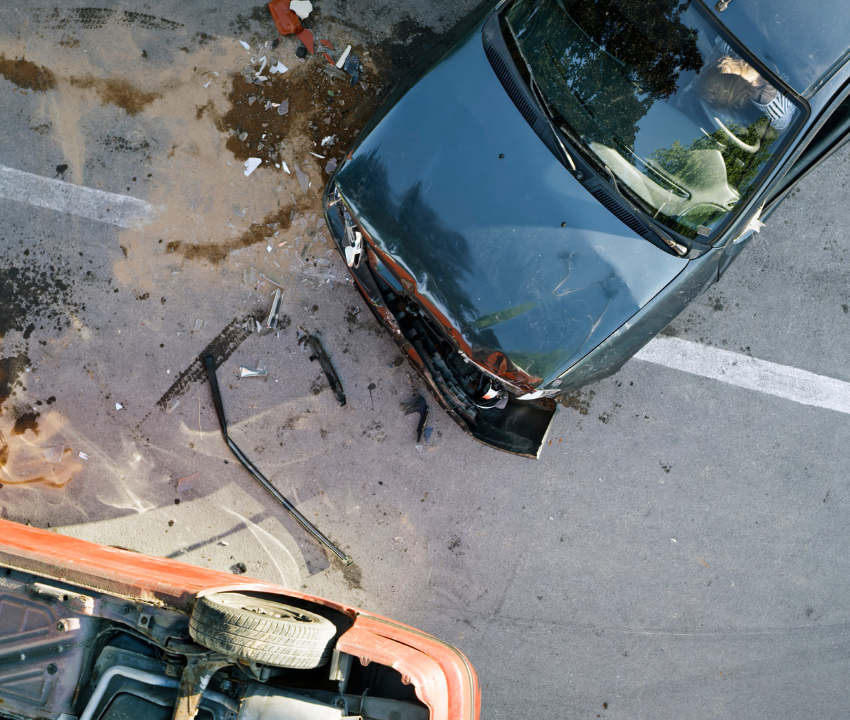THE SIGNS, DIAGNOSIS, AND TREATMENT OF A CAR ACCIDENT HEAD INJURY
 In the most basic sense, a traumatic brain injury (TBI) refers to a sudden injury that damages the brain. TBIs can be close-headed — such as what occurs when you receive a bump or blow to the head — or penetrating, such as what occurs when an object penetrates the skull. Regardless of the type of TBI in question, traumatic brain injuries are anything but basic.
In the most basic sense, a traumatic brain injury (TBI) refers to a sudden injury that damages the brain. TBIs can be close-headed — such as what occurs when you receive a bump or blow to the head — or penetrating, such as what occurs when an object penetrates the skull. Regardless of the type of TBI in question, traumatic brain injuries are anything but basic.
Every year, traumatic brain injuries contribute to a substantial number of permanent disability cases and deaths. In fact, per the Centers for Disease Control and Prevention (CDC), there were more than 64,000 TBI-related deaths in 2020 alone. This amounts to approximately 176 TBI-related deaths each day. In 2019, the U.S. saw approximately 611 TBI-related hospitalizations per day, for a total of 223,135 that year, many of which are related to severe injuries after car accidents.
These figures do not include the TBIs that emergency room (ER) departments, urgent care centers or primary care doctors treated. They also do not include the many that go untreated each year.
Though not the leading cause of TBIs, motor vehicle accidents are the leading cause of TBI-related deaths. In fact, nearly a quarter of a million TBI-related ER visits stem from motor vehicle accidents of some sort each year.
The bottom line is, TBI can be a severe injury — especially when left untreated. For this reason, if you were involved in a motor vehicle accident, it is crucial that you familiarize yourself with the signs of traumatic brain injury and seek traumatic brain injury treatment right away.
At the very least, see an assessment from a car accident injury doctor to rule out a brain injury or to get on the path to recovery as soon after the accident as possible.
Signs of Traumatic Brain Injury After a Car Accident
The symptoms of a TBI vary from person to person and depend largely on the severity of the injury in question. Medical professionals categorize head injuries in one of three ways: as mild, moderate, and severe.
Understandably, symptoms become progressively more alarming the more severe a car accident head injury is.
Symptoms of Mild Traumatic Brain Injuries
The symptoms of mild traumatic brain injury may be physical, sensory and/or cognitive in nature.
They may include but are not limited to the following:
- Headache
- Fatigue or drowsiness
- Nausea or vomiting
- Speech problems
- Dizziness or loss of balance
- Sensitivity to light or sounds
- Sensory problems such as ringing of the ears, blurred vision and/or a bad taste in the mouth
- Changes in smell
- Loss of consciousness for anywhere from a few seconds to a few minutes
- Memory or concentration issues
- Disorientation and confusion
- Difficulty sleeping or sleeping more than usual
- Feelings of anxiety or depression
If you notice any of these symptoms after a car wreck, seek a diagnosis and possibly traumatic brain injury treatment right away. Also, remember that concussion symptoms can be a sign of mild TBI.
Symptoms of Moderate to Severe Traumatic Brain Injury
The signs of a moderate to severe traumatic brain injury (TBI) may be more overt and worrisome the more severe the head injury is. Symptoms may develop within an hour of the car wreck or take days to manifest.
It is crucial that you and/or your loved ones keep an eye out for physical and cognitive symptoms after head trauma, such as the following:
- Loss of consciousness for several minutes to hours
- Repeated vomiting
- Continuous nausea
- Persistent headache or headache that grows worth with time
- Seizures or convolutions
- Clear fluids draining from the ears or nose
- Dilated pupils in one or both eyes
- Inability to awaken from sleep
- Loss of coordination
- Numbness or weakness in the fingers and/or toes
- Slurred speech
- Extreme confusion
- Combativeness, aggression, agitation or other unusual behavior
- Coma
If you or a loved one develop any of these symptoms of moderate to severe brain injury following a car crash, seek treatment from a qualified car accident head injury doctor right away.
Symptoms of a Traumatic Brain Injury in Children
Many symptoms of traumatic brain injury are internal. As a result, children who develop TBIs may not have the words or even the ability to communicate what they are feeling, such as headache, fatigue, sleep disturbances, weird taste in the mouth, etc.
If your child was an occupant in a vehicle involved in a collision, keep a close eye on him or her for days to weeks after the incident.
Some symptoms you can observe that should prompt a visit to the doctor are as follows:
- Easy or out-of-character irritability
- Changes in nursing or eating habits
- Inability to be consoled
- Persistent crying
- Changes in sleeping habits
- Seizures
- Inability to pay attention
- Extreme drowsiness and/or inability to wake up
- Depression or sadness
- Loss of interest in once-loved toys or activities
Ideally, you will have your child assessed for a TBI shortly after an auto collision, just in case. However, if you choose not to, pay close attention to him or her for any of the aforementioned symptoms or changes in behavior.
Diagnosing a Traumatic Brain Injury
Traumatic brain injuries are often medical emergencies. Unfortunately, too many victims are unaware they even have a TBI and/or fail to recognize them as the emergencies they are. However, without immediate treatment, a victim’s condition after brain injuries may rapidly worsen and the risk of consequences increases.
If you suspect that you or a loved one developed a TBI in a car crash, mention your concerns to the responding paramedics, the doctor in the emergency room and/or your primary care doctor. The attending healthcare professional may use one or all of three means to diagnose a TBI:
- Computerized Tomography (CT) Scan: A CT scan is typically the first step hospitals use to diagnose TBIs in car crash victims. The emergency room will typically perform a scan — which entails a series of X-rays — to assess your skull for fractures and to look for evidence of blood clots, internal bleeding, brain tissue swelling and bruised brain tissue.
- Magnetic Resonance Imaging (MRI): An MRI is another type of imaging test. However, whereas CT scan involves the use of X-rays, MRIs utilize powerful magnets and radio waves to create a detailed view of the brain and the activity in individual brain cells. Typically, health professionals will conduct an MRI once a victim’s condition stabilizes and/or if symptoms do not improve following the incident.
- Intracranial Pressure Monitor: With some car accident head injuries, the brain tissue swells to the point where it puts an enormous amount of pressure on the skull. This, in turn, causes brain damage. If imaging tests reveal swelling, a doctor may insert a probe through the skull to monitor pressure.
Doctors may use each of these tests to diagnose the presence of a brain injury. However, to determine the severity of a TBI, they will refer to the Glasgow Coma Scale.
The Glasgow Coma Scale
Sometimes paramedics or ER personnel will use the Glasgow Coma Scale to quickly assess for the presence of a TBI. However, many medical professionals use it after a confirmed TBI diagnosis to determine the severity of the injury.
The scale uses a 15-point test that assesses a person’s abilities to move their eyes and limbs and to follow directions. It also assesses injured persons’ coherence of speech. The goal of this test to determine the severity of a head injury.
The test giver will score the test taker’s abilities on a scale of three to 15. The higher a person’s score, the less severe his or her injury.
If you are looking for an excellent Doctor for Auto Accident Injury call a doctor 1st! 210-342-2777 Dr. B, DC “The Accident Doctor”.








